
- Most functional
- Most cultural
- Most funny
- Most sporty
- Most colorful
This is a wonderful way to entertain the kids this summer when it rains or everyone is tired of the sun!
Can’t wait to see your creativity!!!!!!!

This is a wonderful way to entertain the kids this summer when it rains or everyone is tired of the sun!
Can’t wait to see your creativity!!!!!!!
The Global Awareness program brings expanded educational and cultural opportunities to the forefront for au pairs. It gives them the opportunity to share their culture with others.
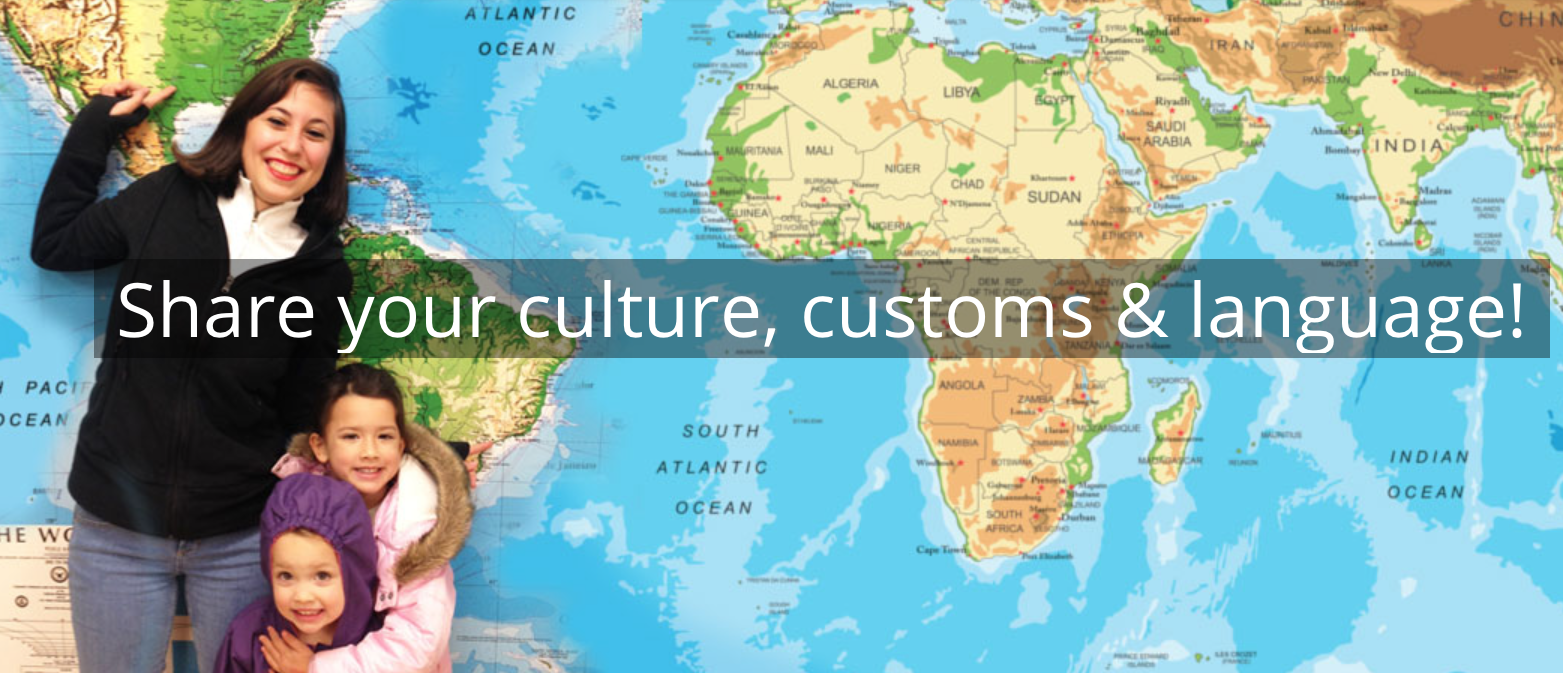
Au Pairs can volunteer in pre-school, elementary and middle school classrooms. They have the opportunity to share their culture, customs and language with young American children. The mission of this volunteer experience is to bring multi-cultural understanding into the classrooms and help children form positive first impressions of people from other countries. Visit the Get Involved page of our website for all the info you need to get started.
No. Au pairs have done presentations for scout groups, at birthday parties and at children’s story times.
Teachers, parents or others who would like to schedule a presentation, please visit the Global Awareness website for more information and a contact link.
Global Awareness offers a webinar series for host parents. The goal is to increase their cultural awareness, improve communication with their au pair and ensure the most successful exchange possible. Your community counselor can provide you with the webinar schedule and how to register.
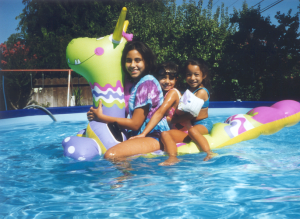
Click here for the Spanish Version.
FUN IN THE SUN
Babies under 6 months:
For All Other Children:
HEAT STRESS IN EXERCISING CHILDREN
HEAT STRESS IN INFANTS
Infants and small children are not able to regulate their body temperature in the same way that adults do. Every year, children die from heat stroke from being left in a hot car, often unintentionally, with the majority of these deaths occurring in children 3 and under. Here are a few tips for parents when traveling in a car with infants or young children:
POOL SAFETY
– See more at: https://www.aap.org/en-us/about-the-aap/aap-press-room/news-features-and-safety-tips/Pages/Sun-and-Water-Safety-Tips.aspx#sthash.dmJsgr9D.dpuf
2019 Weekend classes
Important to note:
If the class is remote, Host Families pay for the class and what is included. Au Pairs pay for any transportation, food, & lodging not included in the cost of the class.
Albany, NY College of St. Rose, at Silver Bay http://silverbayaupaircourse.com/
AP chooses subjects, see course descriptions. Lodging and meals are included in the average cost of $285. Each weekend plus homework, provides an au pair with 3 credits.
Brookville, NY Long Island University http://liu.edu/aupair
Weekend classes focusing on one topic. They offer transport from the train station at a certain times. Please see course descriptions. Average class cost of $250 and is based on receiving up to 3 credits. Lodging and meals are not included but can be purchased for $100.
New York City, NY Cultural Hi-Ways/ Borough of Manhattan Community College (BMCC).
http://www.campusce.net/learningacrossamerica/category/category.aspx
Learning Across America. Classes meet on three weekend days spread out for several weeks with a break before the travel portion of the class. Class focus and tour locations include Niagara Falls, NYC, Montreal, Amish Country of PA, Boston, & Washington DC. Au Pairs earn either 32 or 40 hours with attendance for all classes & the tour, and completing the homework assignments. Prices range from $279 – $485 depending on number of classes and tour location.
New York City, NY UCLA Extension https://www.aupairclasses.org/new-york
Performing Arts (Theater/ Broadway, Music) or Visual Arts (Art Architecture, Photography) class offerings. 36 hours per class, Friday -Sunday for 295 +100 in fees. 72 hours for both classes for $500 +215 in fees. No housing or meals included.
White Plains, NY Pace University www.pace.edu/eli/westchester/j-1-au-pair-student
3 course offerings – American Studies through Film, Cross Cultural Communication, American Humor, Tourism. 20 credit hour class: 9-5 pm Sat & Sun for $200. 40 hour credit class: weekend class & research essay requirement for $365. No housing, but free parking.
Purchase, NY SUNY Purchase www.purchase.edu/ell
Explorations in American Life and Language – courses focused on English language in business and culture classes. Weekend options: 20 hours or 40 hours towards your U.S. government education requirement. No housing available, but short-term parking available.
West Harrison, NY Fordham University www.fordham.edu/aupair
Classes focus on Psychology and Marketing presently. Weekend classes with pre- assignment options for 20 hours ($225) or 40 hours ($375) if research paper is also submitted. Free Parking.
New Rochelle, NY Iona College http://www.iona.edu/Student-Life/Student-Experience-Activities/International-Student-Services/ESL-General-Au-Pair-Program.aspx
2 class offerings –American Pop culture and The Real You-Fulfilling Your Dreams. Each class has a 2 or 3 credit option depending on completing a multipage assignment. 2 credit class costs $225, 3 credit course costs $350. Lunch served both days, class runs from 9am – 5:45pm each day. No housing available.
Boston, MA Bunker Hill Community College https://www.aupairclasses.org/boston
2 classes offered – Discover Boston and Make a Difference. Receive up to 45 hours for a 3 day course, $295 + $60 in fees. Up to 90 hours for both classes for $500 +115 in fees. No housing provided, however local recommendation listed on site with discount code.
Fairfield, CT Cultural HiWays/ Borough of Manhattan Community College (BMCC).
http://www.campusce.net/learningacrossamerica/category/category.aspx
Learning Across America. Classes meet on three weekend days spread out for several weeks with a break before the travel portion of the class. Class focus and tour locations include Niagara Falls, NYC, Montreal, Amish Country of PA, Boston, & Washington DC. Au Pairs earn either 32 or 40 hours with attendance for all classes & the tour and completing the homework assignments. Prices range from $279 – $485 depending on number of classes and tour location.
Stamford, CT Cultural HiWays/ Borough of Manhattan Community College (BMCC).
http://www.campusce.net/learningacrossamerica/category/category.aspx
Learning Across America. Classes meet on three weekend days spread out for several weeks with a break before the travel portion of the class. Class focus and tour locations include Niagara Falls, NYC, Montreal, Amish Country of PA, Boston, & Washington DC. Au Pairs earn either 32 or 40 hours with attendance for all classes & the tour and completing the homework assignments. Prices range from $279 – $485 depending on number of classes and tour location.
Morristown, NJ Cultural HiWays/ Borough of Manhattan Community College (BMCC).
http://www.campusce.net/learningacrossamerica/category/category.aspx
Learning Across America. Classes meet on three weekend days spread out for several weeks with a break before the travel portion of the class. Class focus and tour locations include Niagara Falls, NYC, Montreal, Amish Country of PA, Boston, & Washington DC. Au Pairs earn either 32 or 40 hours with attendance for all classes & the tour, and completing the homework assignments. Prices range from $279 – $485 depending on number of classes and tour location.
New Brunswick, NJ Rutger’s University http://www.cpe.rutgers.edu/aupair/
Classes tailored to Au Pairs. Topics include American Food, Childcare topics etc. 8:30-4:30 on Saturday & Sunday. $390 for 3 CEUs, includes materials, breakfast, and lunch. Certificate upon completion. No housing but onsite parking, free shuttle from NJ transit train station. See website for full details.
Millersville, PA Millersville University
Amish Culture studies in Lancaster County Pennsylvania. 36 hours of coursework from classroom discussion, field trip and pre and post work assignments. $350 for tuition, registration, materials, and excursion fees. Housing not available, but main office is open to contact for suggestions. Class runs from Friday at 3pm – 4pm on Sunday.
Massachusetts Bay Community College / East Coast Adventures http://www.massbay.edu/journey/
“Journey through North America” class – class room learning and trip for 3 CEUs.
Montreal, Niagara Falls, Philadelphia, Quebec City & Washington DC. APs responsible for visa/ passport requirements for any travel to Canada. See site for dates & pricing.
Washington, DC Cultural HiWays/ Borough of Manhattan Community College (BMCC).
http://www.campusce.net/learningacrossamerica/category/category.aspx
Learning Across America. Au Pairs earn 36 hours Prices range from $279 – $485 depending on number of classes and tour location. Classes meet at Trinity Washington University. See website for more details.
Washington, DC University of the Virgin Islands www.uviprogram.org
http://reg.abcsignup.com/reg/event_page.aspx?ek=0040-0016-856f3de29a2043ed8c7ded072bb2faf7
American History classes, Exploring DC with a walking tours, Sign Language, Personal/ Career Development, Movie making, Understanding politics etc. Saturday & Sunday for 20 hours/ 2 CEUs for $275. Class occurs at the Smithsonian Museums. See website for details. Additional classes in Maryland.
Washington, DC Virginia International University http://viu.edu/sels/programs/adult-esl.html#Museum
One day classes at Smithsonian Museums and private are galleries. Classes typically run 10:30am – 3:30 pm. The museum classes are $40/class, and students earn 0.5 CEUs. For new students, there is a one-time administration fee of $20. There is no textbook. See website for details.
Washington, DC George Washington University Http://www.WBLseminar.wordpress.com
Women’s Business Leadership. Focused on leadership, mentorship, professional communication, & goals. Pre- and post-class assignments. 36 hours towards requirement. $360 early registration price / $375 late registration price + $25 materials fee.
Washington, DC University of the District of Columbia Community College www.aupairclasses.org
Learning to live your American Dream. 45 hours for 3-day weekend class $295 + $60 (materials and registration fees). Discount offered for enrolling in multiple classes during registration. No housing or meals available through the school, but discount at local hostel with a discount code. Details on class website.
Towson, MD Towson University www.towson.edu/elc
Class options focus on Pop culture, English grammar, or the Baltimore area. APs should sign up at least one week before the class as field trips tickets may need to be ordered in advance. 3 credit class, pre- class assignments approximately 16 hours’ worth of homework. No lodging or meals provided. $300 +$25 application fee.
Richmond, VA University of Richmond
Under Language and Culture Studies: http://spcs.richmond.edu/noncredit/language-culture/index.html and Under Cultural Studies: http://spcs.richmond.edu/noncredit/language-culture/culture.html
Under humanities-culture: http://spcs.richmond.edu/noncredit/areas/humanities-culture/cultural-enrichment.html
Please see course descriptions. The average cost of $325 is based on 3 credits. Less expensive, shorter one day opportunities are available for less credits. No lodging available but, website references to local hotels at a special rate.
Chapel Hill, NC University of North Carolina at Chapel Hill www.humanities.unc.edu
“Adventures in Ideas: Weekend Seminars” Lectures and optional meal. Several offerings focusing on Global Urban Life, American Christianity, African American Music, Mapping the Ancient World etc. See website for more details. Tuition by deadline $110 – $125, late registration $125 – $140. Meals $15-20. Discounts for multiple registrations. No housing or transportation available.
Charleston, SC Trident Technical College
http://www.tridenttech.edu/ce/programs/catalog/charleston-history-and-culture.htm
Southern culture, history, language, landmarks. Learning takes place in and out of the classroom. Includes graveyards (ghost stories). Late Friday – Sunday. 30 hours, for $325. Registration includes fees for events, but not food or lodging. Hostel information available on site.
Tampa, FL Hillsborough Community College www.aupairclasses.org
Multiple classes, see website for details. 40 hours each. $295 Tuition + $50 materials fee. Late registration penalty is $50. Discount offered for enrolling in multiple classes during registration. Housing is not included in price of tuition, but can be arranged as a convenience. Housing cost depends on length of stay and accommodations chosen. See site for details.
Nashville, TN University of the Virgin Islands http://www.uviprogram.org/
Psychology: The power of Language and Thoughts. This course will focus on control and mastery of emotions, impulses and actions to achieve personal goals through mind mapping and visualization. Successful completion of the course requirements will earn the student 40 hours or 4 CEU’s. $335 course fee for on time registration.
Chicago, IL Cultural HiWays/ Borough of Manhattan Community College (BMCC).
http://www.campusce.net/learningacrossamerica/category/category.aspx
Learning Across America. Classes meet on three weekend days spread out for several weeks with a break before the travel portion of the class. Class focus and tour locations include Chicago and New Orleans. Au Pairs earn either 32 or 40 hours with attendance for all classes & the tour, and completing the homework assignments. Prices range from $279 – $459 depending on number of classes and tour location. Classes take place in downtown Chicago at Loyola University. Airfare to/from New Orleans is not included in cost of tuition. See website for more details.
Chicago, IL UCLA Extension www.aupairclasses.org
Discover Chicago and Make a Difference class offerings. Receive up to 45 hours for a 3-day weekend class for $295 + $50 food, materials and activity fee & $10 registration fee. Discount given for multiple class sign up at registration. No lodging available, but website refers to local hotels. Pre and post assignments required for completion certificate.
Chicago, IL Illinois Institute of Technology
https://www.kentlaw.iit.edu/news/2017/new-course-american-legal-system-in-popular-culture
The American Legal System in Popular Culture is a six-credit course offered to students seeking an introduction to the American legal system and how it is portrayed in modern media. The course is targeted at au pairs who are interested in a broad understanding of the nation’s legal system and its role in shaping American culture. $500, 3-day weekend. See site for details, no housing available.
New Orleans, LA Tulane University
36 hours earned while learning about New Orleans. Class and local transportation pass $289. Class, local transportation pass, accommodations and breakfasts $459. Class costs do not include transportation to New Orleans.
Boulder, CO University of Colorado http://iec.colorado.edu/aupairs see “course descriptions”
This intensive weekend course for au pairs focuses on the business of tourism. Participants explore tourist destinations and visit local businesses and attractions for analysis and discussion. As a final project, teams develop a tourism campaign promoting Boulder to people from their home countries. $450 includes tuition, activity fees, Friday dinner, Saturday lunch, Sunday lunch, Saturday bus pass. 36 hours earned which includes pre-and post-assignments. Class is held 6 -9pm Friday, 9-5 Saturday and 9-4 on Sunday. Travel to/from airport and hotel package options available. See site for full details.
Salt Lake City, UT Utah Valley University https://www.aupairclasses.org/salt-lake-city
Make a Difference and Discover Salt Lake City. Some au pairs have complained this class focuses heavily on the Mormon religion that is prevalent in Utah. $500 tuition and $115 in fees. Housing option available for additional fee – $120 per student for 3 nights in a shared bed or $180 per student for your own bed in a shared room. Transportation information on site.
San Francisco, CA Cultural HiWays/ Borough of Manhattan Community College (BMCC)
Learn about the history and culture of San Francisco in the class room and around town. Classes take place at City College of San Francisco. $299 includes course, materials and activity fees. See site for details.
San Francisco, CA University of California https://www.aupairclasses.org/san-francisco
50% class time / 50% city experience via museums etc. Pre- class assignments as well as post class assignments required to receive certificate. 2 courses offered, up to 45 hours each- $295 for one discount for registering for multiple classes at the same time. No housing or meals available through the school.
San Francisco, CA University of the Virgin Islands www.uviprogram.org
Photography class offered periodically. Check site calendar for upcoming classes.
Los Angeles, CA UCLA Extension www.aupairclasses.org
American culture and history with a focus on entertainment and the arts focusing on either performing arts or visual arts. Friday – Sunday class, $405 for class, materials/ activities, & registration fee. No housing provided, but lodging locations recommended by school upon registration.
Los Angeles, CA University of the Virgin Islands www.uviprogram.org
Sign language course, 4 CEUs. Lodging available that includes a Saturday night hotel stay in the registration fee. See site for more details.
San Diego, CA University of California https://www.aupairclasses.org/san-diego
50% class time / 50% city experience via museums etc. Pre- class assignments as well as post class assignments required to receive certificate. 2 courses offered, up to 40 hours each – $295 for one. Discount for registering for multiple classes at same time. This class involves more written assignments than San Francisco class. Housing and meals available for an additional fee.
Big Island, HI UCLA Extension https://www.aupairclasses.org/hawaii
“Explore our Environment” pop up course offering 72 hours over a 6 day course offered in June 2019. $975 to cover tuition, registration, shared accommodations, 5 breakfasts, 5 lunches, transportation and entry to sites during field trip, course materials, and supplies. Au Pairs responsible for their own airline flights. See site for complete details.
Springtime is a great time to get outside and play! Keep these safety tips in mind. 

Poison ivy, poison oak and poison sumac all contain urushiol, a rash-causing substance that produces an allergic reaction in 60-80% of all people.
You don’t even have to touch the plant to be affected. Urushiol can be transferred by touching another person or an article of clothing that has been in contact with an offending plant. If can also be inhaled if a poison ivy plant is burned.
You can reduce the risk to you and your kids by:
Learning to identify poison ivy, poison oak and poison sumac leaves
Symptoms of poison ivy exposure include red, itchy, swollen skin and blisters.
Always check for ticks after you or your kids have been outdoors during the summertime. Removing the tick as quickly as possible reduces the risk of tick-borne illness such as Lyme disease.
April 18, 2019 – 8:00 am
The happy days of sunshine also brings along the itchy bites of mosquitoes! Especially this summer, due to the large amount of rain we have experienced. Here is some information about mosquitoes and their bites that you may find helpful.
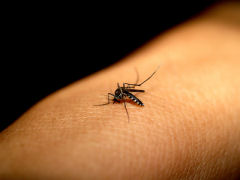
Bites from mosquitoes carrying certain viruses or parasites can cause severe illness. Infected mosquitoes can transmit West Nile virus to humans. Other mosquito-borne infections include yellow fever, malaria and some types of brain infection (encephalitis). The prevalence of these diseases depends on the geographic location. Recently, the USA has cautioned about the Zika virus and the danger for young women of child-bearing age. Certain areas of the world and currently in the USA carry a greater risk of contracting these diseases than others. Ask your host family about the dangers that Mosquitos present in your local area.
Mosquito Bite Symptoms
After the bite occurs, humans require some sort of mosquito bite treatment in order to ease the symptoms that occur. A mosquito bite usually results in redness and minor local swelling around the mosquito bite site. Itching is also very common and tends to last longer than the swelling, which subsides after a few hours. The itching is caused by a skin reaction to the mosquito’s saliva. These symptoms usually occur soon after the mosquito bite has occurred.
After many bites, some people become rather insensitive to them and their skin barely reacts. However, for others the mosquito bite symptoms become more severe with more bites. In fact, some people are considered allergic to mosquito bites and these individuals would definitely benefit from a mosquito bite treatment.
Unlike allergic reactions to bee stings or wasp stings, where an allergic response can cause immediate death, this same response from a mosquito bite is very rare. Instead, symptoms of an allergic response to a mosquito bite involve more significant swelling of the skin with sometimes very large hives or welts forming, more redness at the bite site, and extreme itching. These symptoms tend to last much longer than in non-allergic individuals, sometimes lasting two or three days. In more severe cases, blistering and bruising may also be the response. Overall, it is a much more uncomfortable and painful situation for the victim and a bite treatment becomes important.
American Mosquito Control Association (AMCA), an international organization of nearly 2,000 public health professionals, formed in 1935. Recommends the following:
Mosquito Bite Prevention
Mosquito bites are annoying for individuals, but often no mosquito bite treatment is used. However, because of the possibility of contracting one of the above mentioned diseases, it is very important to avoid getting bitten as much as possible. Prevention is the best treatment.
In order to reduce the risk of being bitten:
Following these steps will go a long way to preventing bites and the subsequent need for a treatment.
Mosquito Bite Treatment
In order to get relief from the mosquito bite symptoms, a mosquito bite treatment is required. A treatment for mosquito bites involves washing the affected areas with soap and water to ensure no infections develop and to help reduce the itch. Applying soap directly to the bite has been suggested as an itch remover. Use a cold compress on the bite site to help alleviate the itch, swelling, and redness. A bite treatment may also involve some of the procedures listed below.
Not scratching the mosquito bite area is an effective treatment for a mosquito bite. Scratching prolongs the swelling, itch, and discomfort, and can open the skin and cause an infection. If your mosquito bite becomes red and swollen and if the area around the bite feels warm to the touch, the bite may be infected. If this condition persists and does not respond to a standard mosquito bite treatment, then consult a physician
If unusual symptoms develop about five days after being bitten by a mosquito, then a standard mosquito bite treatment is ineffective and a visit to a physician should be a priority. Unusual symptoms can include severe headaches, fever, skin rashes, nausea and vomiting, disorientation, chills, and muscle pains.
http://www.bing.com/news/search?q=helpful+tips+to+prevent+mosquito+bites&qpvt=helpful+tips+to+prevent+mosquito+bites&FORM=NWRFSH
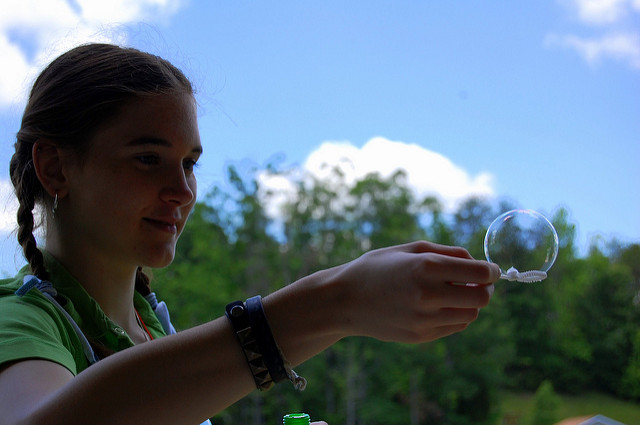 Just because a child is old enough to occupy themselves, doesn’t mean that they should be expected to do so the majority of the time. Host families have a certain expectation of activity and involvement for their children. Get the kids engaged and active. You can be more fun than the TV or a video game.
Just because a child is old enough to occupy themselves, doesn’t mean that they should be expected to do so the majority of the time. Host families have a certain expectation of activity and involvement for their children. Get the kids engaged and active. You can be more fun than the TV or a video game.
Problem:
But, my kids don’t want to do anything but watch TV or play video games.
Solution:
Instead of saying, “Would you like to (fill in the blank with any activity)? The answer will often be, “No.”
Try this, “Now we are going to (fill in the blank with any activity.) or “Would you rather do _____ or ______?” Make sure both the choices are good options.
Your chances of co-operation are greatly increased. Even kids who are reluctant to try new things will usually get in the spirit of things and have fun, if you pick a good activity.
Problem:
I don’t know what to do with school age kids.
Solution:
Look for ideas online. Google “activities school age kids” or “activities tweens”. Below is a list of some ideas to get you started.
Note: Always get permission from your host parents before taking the kids places.
Photo: Killian77
Use the guide below to discuss tornado safety with your host family. Request a meeting to discuss where you would go inside their home and what they expect from you when a warning or a watch is given in your area.
What you need to know about Tornadoes:
What is a Tornado?

A tornado is a violently rotating column of air extending between, and in contact with, a cloud and the surface of the earth. Tornadoes are generally spawned by thunderstorms, though they have been known to occur without the presence of lightning. The stronger tornadoes attain an awe-inspiring intensity, with wind speeds that exceed 200 mph and in extreme cases may approach 300 mph.
The United States has the highest incidence of tornadoes worldwide, with about 1,000 occurring every year. Tornadoes touch down in the Atlanta area each year.
According to Stu Ostro, a Senior Weather Specialist at The Weather Channel, this is due to the unique geography that brings together polar air from Canada, tropical air from the Gulf of Mexico, and dry air from the Southwest to clash in the middle of the country, producing thunderstorms and the tornadoes they spawn.
Tornadoes can come one at a time, or in clusters, and they can vary greatly in length, width, direction of travel, and speed. They can leave a path 50 yards wide or over a mile wide. They may touch down for only a matter of seconds, or remain in contact with the ground for over an hour.
How do I know if a tornado will touch down where I live?
The National Weather Service broadcasts severe weather conditions on radio, TV, or on NOAA Weather Radio. Every host family should have a NOAA weather radio in the home or a weather alert app on their phone. The radio or phone app makes a loud alert sound, letting you know there is an emergency. Ask your host parents to make sure your have this app. Some areas of Atlanta have outside warning sirens. This is a very loud alert sound outside. The siren is activated when a tornado has been sighted in the specific area.
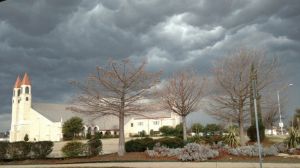
How does an au pair in your home know there is a watch or warning?
A tornado WATCH means conditions are right for a tornado to occur. A tornado WARNING means a tornado has been sighted in the posted area or is visible on radar. A location of the sighting is normally given along with its projected movement.
Become familiar with your specific area. What part of Atlanta do you live? What is the county that you live in? What is the closest major highway or street? Become familiar with the television channel that will give you details of where a tornado is touching down. During a tornado warning, listen out for info about your area on television.
A Tornado watch has been issued. What Do I do?
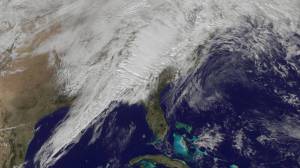
FOR TORNADO WATCHES:
Stay tuned to a local radio or television station or listen to your NOAA Weather Radio. Our local news stations have very sophisticated technology. The weather person can tell what specific area is affected. CBS, NBC or ABC local stations will all have reports during a potential tornado. Call your host parents for advice about picking up children who are not at home.
Bring all children inside.
DO NOT SEEK SHELTER UNDER A TREE OUTSIDE.
Bring Pets to their safe place.
Secure any loose objects outdoors, or move them inside
Survey local structures for the most suitable shelter
Stay in communication with the host parents to help you decide if the warning will become more serious. Be alert to changing weather conditions. Look for approaching storms. Look for the following danger signs:
Dark, often greenish sky
Large hail
A large, dark, low-lying cloud (particularly if rotating)
Loud roar, similar to a freight train.
A Warning Is Issued What Do I need to do?
When a tornado warning has been issued, you may have very little time to prepare. How you respond now is critical. OBEY ADVISORIES PROMPTLY! ACT QUICKLY!
In A Frame Home
Seek shelter in the lowest level of your home (basement or storm cellar). If there is no basement, go to an inner hallway, a smaller inner room, or a closet. Keep away from all windows.
Make sure you have a portable radio for information while you are in the safe room. Cover your head and eyes with a blanket or jacket to protect against flying debris and broken glass. Instruct the children to do the same. If you have a bicycle helmet this is ideal! You can cover yourself with a mattress, but don’t waste time moving mattresses around.
Keep your pet on a leash or in a carrier.
Multiple tornadoes can emerge from the same storm.
If a tornado has hit your area, do not go out until officials say it is safe. Most injuries from tornadoes occur due to flying debris or down gas or electric connections.
Keep yourself and the children calm. Sing or talk to keep young children distracted. The storm will pass by soon!
If you are outside:
Try to get inside and seek out a small protected space with no windows.
Avoid large-span roof areas such as school gymnasiums, arenas, or shopping malls.
If no inside protection is available, get into a vehicle, buckle your seat belt and try to drive to the closest sturdy shelter.
Stay in the car with the seat belt on. Put your head down below the windows; cover your head with your hands and a blanket, coat or other cushion if possible.
If you can safely get noticeably lower than the level of the roadway, leave your car and lie in that area, covering your head with your hands
If you cannot get inside a car, crouch for protection beside a strong structure, or lie flat in a ditch or low-lying area and cover your head and neck with your arms or a piece of clothing.
Do not get under an overpass or bridge. You are safer in a low, flat location.
Never try to outrun a tornado in urban or congested areas in a car or truck. Instead, leave the vehicle immediately for safe shelter.
Watch out for flying debris. Flying debris from tornadoes causes most fatalities and injuries.
If you are in a car:
Ideally, you should avoid driving when tornadoes or other kinds of dangerous weather threaten, as a vehicle is a very unsafe place to be. If, however, this is not possible, stay as calm as possible, and assess the situation.
The best choice is to take shelter immediately in a nearby building.
If your vehicle is hit by flying debris while you are driving, pull over and park.
If no building is near, one option might be to get out of the car and lie flat in a ditch or other low-lying area that is of sufficient depth to provide protection from the wind If you do so, beware of water runoff from heavy rain that could pose a hazard, get as far away from the vehicle as possible, and shield your head from flying debris.
Do not leave a building to attempt to “escape” a tornado.
If you are already in a sturdy building, do not get in a vehicle to try to outrun a tornado.
This information was obtained in Weather Channel web site. For more information go to: http://www.ready.gov/tornadoes
 We live in a time of constant sharing through social media. We often share pictures, plans of somewhere we are going or rants about problems, without thinking much about who will see it and what could be the consequences.
We live in a time of constant sharing through social media. We often share pictures, plans of somewhere we are going or rants about problems, without thinking much about who will see it and what could be the consequences.
Before clicking “post”, stop to think:
This will help protect your privacy and safety as well as that of your host family. It is important to respect your host family’s privacy and not share personal details and information. This applies to all kinds of situations, including: personal conversations, email and social websites.
For your own safety, it is a good idea to be careful what personal information you share about yourself as well. You should not give out information like your telephone number and address to people you don’t know. Safer to meet a new friend in a public place, than to give them your address before knowing them.
Once you post something on the internet (even if you later delete it), it can show up elsewhere. Unless you have specific permission from your host family, you should never post pictures of them, their children or their home on the internet.
If you have a blog or website where you post in your native language, remember there is translation software. So, even if you say it in your native language, be sure it is not something that might be misinterpreted in translation or something you will regret saying.
“Rest and be thankful.” – William Wordsworth
Holidays and vacations are a great opportunity to rest, recharge and explore the U.S.
Spring break is a busy travel season for host families. Here are some reminders about program rules regarding holidays and vacations.
Holidays
Vacations
Important: If an au pair is traveling outside of the U.S., she must have her DS2019 signed (travel validation) PRIOR to her departure from the US. A visitor’s visa may also be needed for the country you are visiting. More information about this may be found here on the Au Pair in America website.